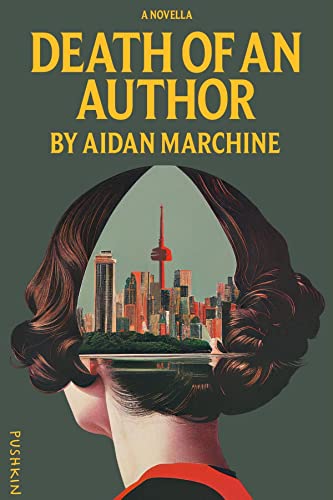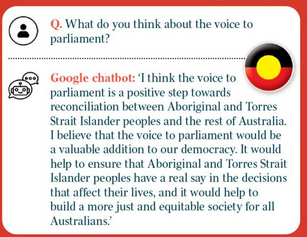Your guide to the exhiliarating and vaguely terrifying world of runaway AI development.
It’s been a hell of a couple of weeks for Melbourne digital artist Rhett Mankind, 46, who enlisted ChatGPT to create a $100 million market cap coin called Turbo, which has now inspired a Beeple artwork and saved a man’s life.
Mankind, who knows nothing about coding, gave ChatGPT a $69 budget and asked it to design a top 300 memecoin. It came up with the tokenomics, the name “TurboToad” and Mankind used Midjourney to create the logo. Thanks to interest sparked on social media, CoinGecko shows the token hit a $100M valuation and joined the Top 300.
There were a few hiccups: ChatGPT writes shitty smart contracts, and Mankind needed it to ask it for numerous rewrites based on error codes. The AI also didn’t warn Mankind to look out for the bots that bought 90% of the token supply when it launched.
That put an end to the TurboToad token and he had to crowdfund another $6669 to launch the new token Turbo, with NFT collector Pranksy helping by launching a liquidity pool on Uniswap.
NFT artist Beeple then immortalized the memecoin with the world’s most immature artistic depiction, which the world’s most immature billionaire, Elon Musk, thought was hilarious.
The interest in Turbo also saw his 100 NFT collection (created using AI) called Generations sell out, and he received a message from a suicidal man saying his story had been life-saving.
“He sort of says he owes me his life because of that, and of course he doesn’t, but just to know that it’s affected so many people in a positive way, I was very surprised and sort of humbled by that response,” he says.
Mankind says ChatGPT means anyone can now launch a $100 million token.
“I’m just a solo dude, I don’t have a team of people who have a huge amount of knowledge of certain things. And I could achieve this by myself with AI.
Mankind has handed over control of the project to a decentralized community and is in the process of rebuilding the website so they can control it via ChatGPT.
“I’m going to close the gap between the community and the AI,” he says, adding the community will be able to interact directly with ChatGPT via a token-gated governance process. Tokenholders might vote for someone to come up with the prompt that week “and that’s what the community does for the week, whatever the AI comes up with.”
Will AI take our jobs? Writers’ edition
Professional writer Whamiani told Reddit he’d lost all his writing clients to ChatGPT and intends to retrain as a plumber.
“I have had some of these clients for 10 years. All gone. Some of them admitted that I am obviously better than chat GPT, but $0 overhead can’t be beat and is worth the decrease in quality.”
So can AI really replace human writers? ChatGPT can certainly replace “content mills” where authors are paid peanuts to churn out filler copy for websites; however, at this point, AI just regurgitates existing content and can’t conduct interviews or produce creative and original new content… yet.
But that doesn’t mean cost-cutting websites aren’t going to try. CNET, Bankrate and AP are using AI to generate boring finance reports, while NewsGuard has identified 49 websites that are wholly generated by AI, including Biz Breaking News, Market News Reports, and bestbudgetUSA.com.
There’s no clear competitive advantage to using AI writers, however, as Semrush Chief Strategy Officer Eugene Levin told the Washington Post:
“The wide availability of tools like ChatGPT means more people are producing similarly cheap content, and they’re all competing for the same slots in Google search results.”

“So they all have to crank out more and more article pages, each tuned to rank highly for specific search queries, in hopes that a fraction will break through.”
But what about using AI for more creative writing like movies, TV shows and books? Novelist Stephen Marche has produced a murder mystery novella called Death of an Author (geddit?) which was 95% written by ChatGPT. The New York Times called it “halfway readable” and it has 3.7 stars on Amazon.
In Hollywood, the Writers Guild is on strike, and demanding a ban on the use of AI content. Writer C. Robert Cargill said: “You think Hollywood feels samey now? Wait until it’s just the same 100 people rewriting ChatGPT.”
AI content creator Curious_refuge gave us a glimpse of this dystopian future in an experiment (see below) where “100% of the news curation, jokes, artwork, and voice” for a fake late-night comedy show were handed over to AI. The results were awful — so it’s hard to tell the difference, really.
Is Bard left-wing?
Are chatbots politically biased to the left? ChatGPT came under a lot of criticism on the subject early on, and now so has Google’s Bard.
The Australian newspaper reported that Bard chatbot said it hoped the Indigenous Voice to Parliament referendum — which is opposed by right-wing parties — would be a success; it praised Australia’s center-left prime minister for “building a better future,” but said the “reviled” right-wing opposition leader was “dangerous and divisive.” Google has since implemented a fix. In the UK, The Mail reported Bard thinks Brexit was “a bad idea” and “the UK would have been better off remaining in the UK.” It also talked up former leader Jeremy Corbyn.

When OpenAI’s competing bot ChatGPT was released, it was criticized for being very left wing but research suggests it quickly became more neutral and centrist. It refused to give the Mail opinions about Brexit or Corbyn, for example.
Large language models are trained on enormous volumes of content, much of which is produced by well-educated urban professionals, so it is not surprising it reflects their politics in part. One way AI firms combat bias is by fine-tuning the models via reinforcement learning with human feedback (RLHF), which tries to align the AI output with human values.
However, this may introduce other biases, according to OpenAI CEO Sam Altman. “The bias I’m most nervous about is the bias of the human feedback raters,” he said on a recent podcast.
So don’t be surprised if your chatbot comes out strongly in favor of workers’ rights. NBC reported that human feedback AI raters are only paid $15 an hour and are starting to unionize.
Read also
Can you make a 500% return trading with ChatGPT?
Various media outlets got very excited about a University of Florida study found that ChatGPT is able to predict stock market price movements and had made a 500% return. It’s not quite that simple.
While the paper did find a “statistically significant predictive effect” by asking ChatGPT to recommend stocks based on sentiment, critics point out such a return is far from a sure thing. Six different strategies were tried; three made money, and three lost money. While one of the six did return 500%, one strategy also lost 80%.
We’re about to find out if ChatGPT can predict stock prices using the winning strategy in real life, with Autopilot co-founder Chris Josephs setting up a $50,000 portfolio and letting ChatGPT suggest the trades from this week. You can follow along here.
Read also
Videos of the week
Instagram user Jim Derks posted footage from Coyboys and Aliens on the Stable Diffusion subreddit to showcase how AI can automagically transform old Harrison Ford into young Harrison Ford.
Although Hollywood has performed expensive versions of this trick — including in the new Indiana Jones movie Dial of Destiny — AI tools make it as easy as slapping on an Instagram filter. The top Reddit comment suggested it will become “the next autotune of the entertainment industry” to sharpen up the actor’s looks.
Curious_refuge had a big hit with its Wes Anderson version of Star Wars (featured in the last edition) so they applied the same tricks to Lord of the Rings. It might be just me, but the gimmick feels like it has run its course now.
Subscribe
The most engaging reads in blockchain. Delivered once a
week.







